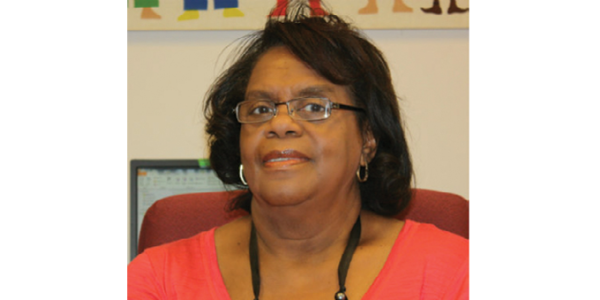NAEYC Member Spotlight: Dr. Mona Williams Thornton

You are here
Dr. Mona Williams Thornton
Associate Dean and Professor of Early Childhood Education, Southern Wesleyan University, Central, South Carolina
For Mona Thornton, quality early childhood education means real experiences. With 47 years in the field—in the classroom, in higher education, and in the child development center she established, which has been in operation for almost 40 years—Mona truly has a lifetime of real experiences working with children. But why does real equal quality to Mona?
“If I made whatever we were doing real, I had them,” Mona says, explaining how children bought in to activities when they felt a significant connection to their own lives. When she was first starting out in the field, Mona visited a child care center that had been getting a lot of buzz in the community. But when she arrived to observe the classroom, she saw a group of 2-year-olds sitting at a table with worksheets in front of them. “I would have been more impressed seeing children having a sensory experience at the water table,” Mona says.
Mona believes in taking cues from the children. In one of Mona’s first early childhood classrooms in the 1970s, a child constructed the Enterprise (the spaceship from the popular television show Star Trek) out of a refrigerator box. Joining in the play, Mona found that using the spaceship to “beam” children to their next centers inspired them to be enthusiastic about transitions. Reflecting and expanding on children’s interests has stayed with Mona as the best way to get children excited about learning.
“I’ve always thought that children get so much from live things,” Mona says. Be it growing their own food in a classroom garden or meeting people from countries they have identified on a map of the world, Mona has experiences with both. For instance, she’s found that children are more willing to taste new foods when they’ve brought in vegetables from home to contribute to group-made vegetable soup because they’re excited about eating “their potato” or “their carrot.”
Another memorable example occurred soon after the children in Mona’s classroom at the Howard University Child Development Center, in Washington, DC, had been exploring different places on a map of the world. After seeing where they lived, the children found where countries they had talked about were located and investigated their different habitats and cultures. A few days after the class had been fascinated by their exploration of India, a woman wearing a sari came to their classroom door. She was visiting from India with the intention of attending a program at the university. The children immediately stopped and asked the visitor, “How did you get here? You can’t drive from where you live!” “They were really processing this,” Mona says, commenting on the children’s attempts to reconcile seeing someone from India with the fact that India is far away. “It was a meaningful exploration.”
If Mona could give only one piece of advice to new teachers, it would be this: “Know your children. The relationship is what they’re going to remember.” She also emphasizes the necessity of making families feel included. As a teacher, she always made sure to tell family members that “these are your children, and you are welcome in this center at any time. You don’t have to make an appointment to come here.” Being open and welcoming is the heart of being real. It’s also the heart of Mona as an educator and a person. Reflecting on her career, Mona says, “I just love what I do.”
Visit naeyc.org/get-involved/membership/spotlight for more information on how to:
Share your Story Answer a few questions to tell us about your work with young children and what NAEYC membership means to you.
Nominate a Member Share why an NAEYC member you know should be recognized for his or her work with young children.